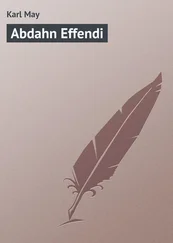“On the edge of our systems,” she said. “Approaching the SS Jannah. ”
“And that’s a problem?” Guests came and went by helicopter all the time: that was the whole point of being aboard the SS Jannah; it never docked, anywhere, ever. The only time it left international waters, and that time was covered by special treaty, was when the liner passed through the Panama Canal or the Pillars of Hercules.
“They’re shielded,” said Captain Bruford. “And we can’t get a handshake. Believe me, we’ve tried.” The Englishwoman looked something between irritated and anxious.
“I think it would be safer,” she added, “if we were to get Your Highness off the ship. We have three high-speed VSVs available, Thornycroft-built and with submersible capacities . . .”
She just couldn’t help it, the Khedive realized. Every statement she made about Utopia Lines came out sounding like an advertisement. It had to be something the company burned into their brains at training school.
“You think I’d be safer aboard the VSV?”
“No.” The captain looked at him, her mind already made up. “I think everybody else would be safer. My chief of security has spent the last ten minutes running a risk analysis and you’re the obvious target.”
Tewfik Pasha nodded. In all probability that was true.
Climbing out of bed without thinking about how that might appear to his visitor, he collected a towel from the back of a chair, only to drop it on the tiles when he reached the cubicle.
One month each year was what he got. Time off for good behaviour, that was how he thought of the SS Jannah . One month away from lessons, from his staff, from protocol, from the General . . .
Four weeks in which he could do what he wanted. Sleep, eat, watch old Beat Takahashi vids, if that was what took his fancy. And then it was back to the uniforms, to living in a goldfish bowl, to being immensely rich but having no money. He owned palaces and slept for eleven months of the year in a small room without either air-conditioning or heating. A room where the basin ran only cold water and his antique Chinese carpet was worn to the thinness of tapestry, its holes and stains covered by a rug, thrown down in the strategic place. Living like that was supposed to teach him humility.
Tewfik Pasha wasn’t an idiot. He wasn’t even a child. He knew there were whole districts of his city that had no water for drinking, washing or anything else, arrondissements where houses had no glass in the windows and sewage ran untreated in the gutters, alleys where raggeds slept at night, curled against walls or under benches, hiding from the police or their families, or from both—violence came in many guises.
Ten years back, when he was small, death squads had cleared the streets of raggeds and kinderwhores, dumping childish bodies by the truckload into the weed-heavy waters of Lake Mareotis. As July had slid into August and the temperatures soared and foreign film crews began to descend on the city, the entourage around the young Khedive spoke of little else. Normal gossip ceased, as did backbiting and the daily jostle for position. A horrified fascination took hold of the palace, from which the Khedive had to be protected.
Rooms stilled when he walked into them, conversations died, no one would talk if he was there. Which made it twice as hard to work out exactly what was going on. It was weeks before he discovered that the rubbish being removed from the souks and alleys was human.
Almost everyone the Khedive overheard approved of what was being done. So much so that in the kitchens and sculleries, hardworking porters cursed each other for not having had the idea first.
The one person not impressed was Koenig Pasha.
With the arrival of autumn came the executions. An army major, two detective sergeants, a colonel in the morales and a uniformed police officer. After that, the street cleaning stopped and the only thing left to drive raggeds from their narrow alleys was that winter’s lashing rain.
Shaking water from his long dark hair, Tewfik Pasha stepped out of his shower and blinked, surprised to find Captain Bruford waiting impatiently in the doorway to his bedroom. He hadn’t actually asked the woman in, Tewfik Pasha remembered with a sigh. Unidentified helicopter or no, punctilious courtesy had kept the Utopia Line’s captain where she stood.
“Come in,” he suggested and turned away to slip his arms through the sleeves of a dressing gown. “Can I offer you coffee?”
His sudden smile dazzled Captain Bruford so much that she accepted, without stopping to remember that it was almost noon and her own breakfast had been eaten hours before. Coffee and toast, served on the bridge; which was what a few of her older officers still called the computer room.
“That helicopter . . .”
The Khedive handed her coffee in a bone-china cup with matching saucer. Both items featured a discreet Utopia Lines logo. “Do you want me to order some croissant?”
She refused the croissant, only too aware that eyes of darkest brown watched her from a face that was perfectly symmetrical, perfectly proportioned . . . just perfect really.
Captain Bruford shook her head and glanced back to find the eyes still watching her. “The VSV,” she said. “You really . . .”
“I am afraid I can’t.” The Khedive’s shrug was apologetic. Almost as apologetic as his voice. “You see,” he said as he spread both hands to indicate his helplessness, “I can’t be seen to run away.”
“But the other passengers . . .”
“You have an onboard defence system,” said the Khedive. He nodded to a complimentary notebook resting on his bedside table. It was that year’s Toshiba, an update of the model with the lizardskin cover and silver corners. In it was everything a guest might want to know about the SS Jannah .
“Somewhere in the small print,” said the Khedive, “it mentions that you carry ship-to-air defences. However, my own intelligence digests confirm that you have functioning PCB.”
“We’ve got what?” The captain’s voice was hollow.
“Lightning throwers, three of them, LockMart-made, second-generation.” The boy wriggled the fingers of one hand. “I’ve got some too. They look like black metal spiders.”
“Like . . .” Captain Bruford halted.
“If they attack you,” said the Khedive, “attack back. If they don’t, then let them land on the ’copter deck. If there’s a problem, I and my bodyguards will deal with it.”
“Bodyguards?”
“Well, bodyguard,” the Khedive admitted. “Sort of . . .”
“And where is this bodyguard?” asked the captain, still cross at being blackmailed over the particle beam weapons. It was blackmail, because PCBs were illegal under an antiproliferation treaty signed eighteen months earlier. Added to which, bodyguards were strictly forbidden aboard the SS Jannah . That was condition one of being accepted aboard.
“Where’s Avatar?” The Khedive glanced round his suite and then at the sunlit balcony beyond. “Now there’s a question.” Dropping his silk dressing gown to the floor, Tewfik Pasha hunted for some trousers. “To be honest, I haven’t a clue . . .”
He was still looking for something to wear when Captain Bruford let herself out. In total, she’d been in his suite for less than ten minutes. And he was, she told herself, irritating, difficult and overprivileged even by the standards of guests on the SS Jannah . He was also undeniably beautiful, with a charisma that made Hollywood replicas look shallow and contrived.
She considered briefly the possibility that he really was the General’s lover. And then her watch chimed and she took the first available Orvis, overriding its programming so that it took her straight down to the ops room. She might be the captain, but this was a civilized ship and she didn’t want to keep her chief of security waiting any longer than was necessary.
Читать дальше












